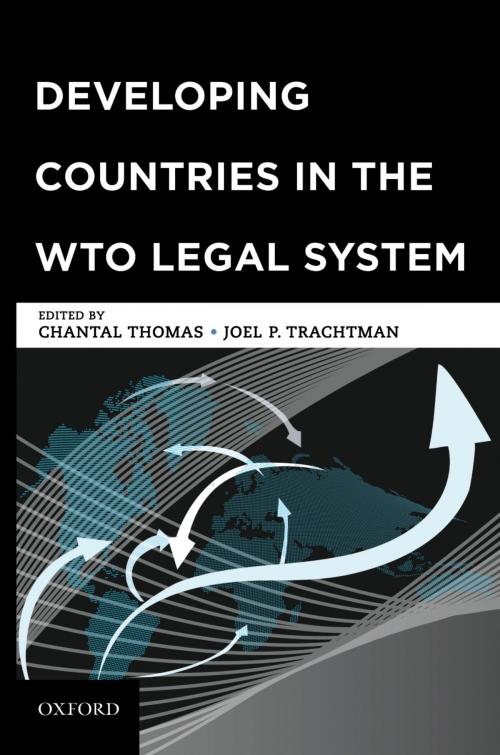Developing Countries in the WTO Legal System
Nonfiction, Reference & Language, Law, Intellectual Property, International| Author: | ISBN: | 9780190452469 | |
| Publisher: | Oxford University Press | Publication: | April 15, 2009 |
| Imprint: | Oxford University Press | Language: | English |
| Author: | |
| ISBN: | 9780190452469 |
| Publisher: | Oxford University Press |
| Publication: | April 15, 2009 |
| Imprint: | Oxford University Press |
| Language: | English |
With contributions from some of the leading experts in international trade, law, and economics, Joel P. Trachtman and Chantal Thomas have compiled a comprehensive volume that looks at the positioning of developing countries within the WTO system. These chapters address some of the most pressing issues facing these countries, while reflecting on Robert E. Hudec's groundbreaking book, Developing Countries in the GATT Legal System. In his landmark contribution, Hudec argued against preferential and non-reciprocal treatment for developing countries. He did so on the basis of a combination of economic, political and legal insights that persuasively demonstrated that non-reciprocal treatment would not benefit developing countries. It is a testament to Hudec's legacy that his analysis is still the object of scholarly discussion more than 20 years later. The first part of this book evaluates the general situation of developing countries within the WTO. The second part examines market access and competition law within these countries. Lastly, it discusses the special arrangements these countries have with international financial institutions, the developing country's capacity to litigate, and an analysis of the country's level of participation in WTO dispute settlements.
With contributions from some of the leading experts in international trade, law, and economics, Joel P. Trachtman and Chantal Thomas have compiled a comprehensive volume that looks at the positioning of developing countries within the WTO system. These chapters address some of the most pressing issues facing these countries, while reflecting on Robert E. Hudec's groundbreaking book, Developing Countries in the GATT Legal System. In his landmark contribution, Hudec argued against preferential and non-reciprocal treatment for developing countries. He did so on the basis of a combination of economic, political and legal insights that persuasively demonstrated that non-reciprocal treatment would not benefit developing countries. It is a testament to Hudec's legacy that his analysis is still the object of scholarly discussion more than 20 years later. The first part of this book evaluates the general situation of developing countries within the WTO. The second part examines market access and competition law within these countries. Lastly, it discusses the special arrangements these countries have with international financial institutions, the developing country's capacity to litigate, and an analysis of the country's level of participation in WTO dispute settlements.















